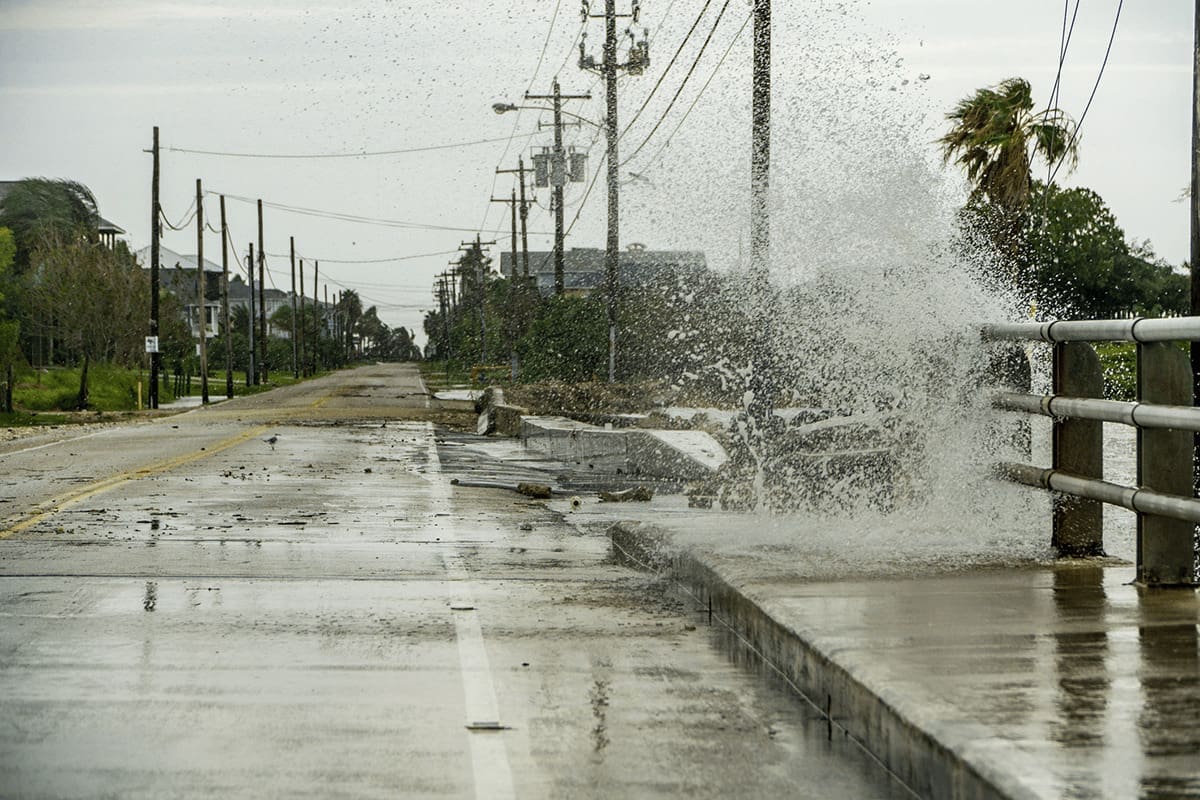
Hurricane Season is Coming: How to Prepare Your HVAC System

Hurricane season here in Houston is no joke! You probably know what to do to prepare yourself … but what about your HVAC system?
This year’s hurricane season
Meteorologists predict an above-average hurricane season this year … which is, of course, one situation where above-average is not a good thing! We trust that they know their forecasts! Or at least, we want to be prepared for the worst. So what can you do to prevent a potential disaster to your HVAC system?
Well, there are things you need to remember to do not only before the storm but after the storm, too. We’re going over all of them right NOW:
Before the storm
1. Depending on how bad a storm is projected to be, you may want to turn off the breaker to your HVAC beforehand or even prematurely turn the electricity off. We know this doesn’t sound like fun, but an ounce of prevention is worth a pound of cure! And you’ll protect your system from suffering an electrical surge if you’ve already turned it off yourself. It’s far better for debris like flying sticks to get trapped in a turned-off unit than trapped in a running unit.
2. Check the A/C unit to ensure it’s secure and that all the screws are screwed on tight. We know this sounds a bit like overkill, but we’ve heard so many stories about an unsecured unit being knocked over in a hurricane. That’s even worse than a bunch of storm debris being stuck in your A/C unit!
3. You may want to cover your unit if you think dirt and debris will get clogged in it with the high winds. If there are lots of trees around the unit, it’s better to be safe than sorry.
4. Let us install a “hurricane pad” for you! When you choose Air Specialist as your HVAC installer, we’ll always install an 8-inch tall hurricane pad. We bolt your A/C unit down securely to this slab. This protects your system from getting flooded and shorting out. A bonus benefit of a raised A/C unit is that debris and moisture won’t clog/rust your bottom condenser coils.
After the storm
1. Check around your outdoor unit and inside where your HVAC system is for any flooding, as well as any leaks. Make sure there is no exposed wiring anywhere.
2. If there is any flooding or other damage to the unit, you’ll want to check your HVAC warranty and see whether electrical storm/hurricane damage is covered. Factory warranties don’t cover it, unfortunately, but many HVAC manufacturers like us DO!
3. If there was damage, whatever you do, don’t turn your A/C back on. Call Air Specialist to come check it out and make repairs before you risk damaging the system further by running it!
Yes, storms are scary here in Houston, but there’s nothing to be afraid of when it comes to your HVAC system. Just follow these guidelines, and go with Air Specialist for the best service possible. If you have any questions, please contact us online or give us a call: [csad_phone]
Post Categories
Why Choose Us?
- We're strategically located in Pearland, TX
- Expertise to service all of your HVAC equipment
- Our technicians are NATE-certified
- We are an ACCA member company
- BBB accredited south Texas HVAC business
- We stand behind all of our HVAC work
